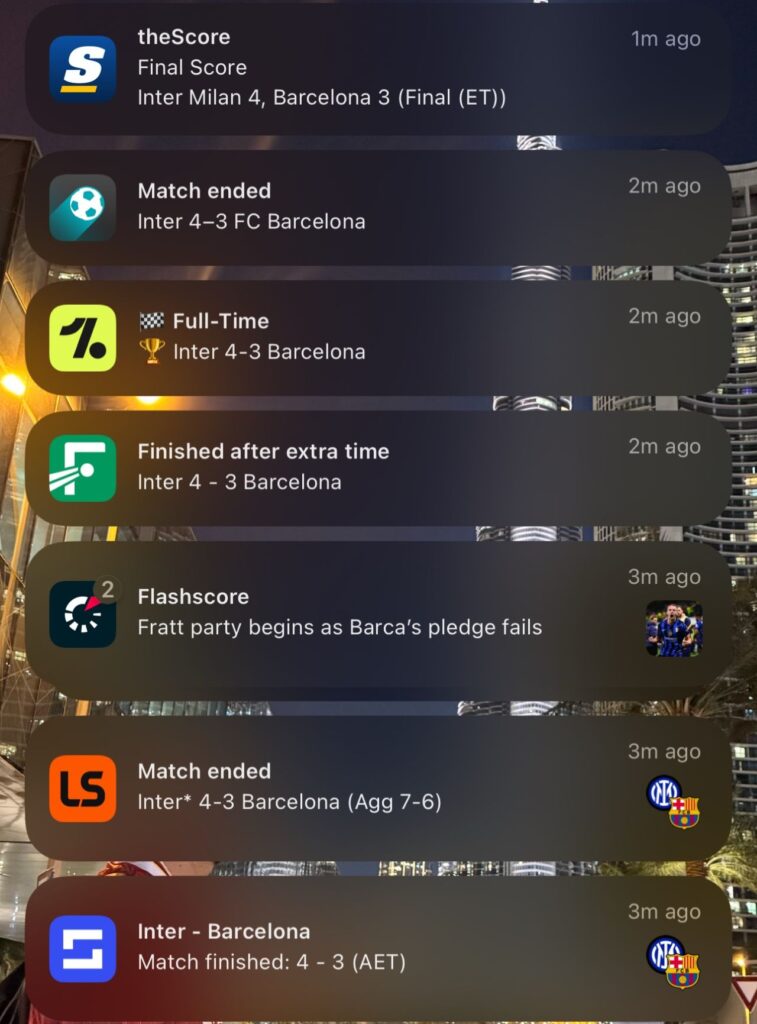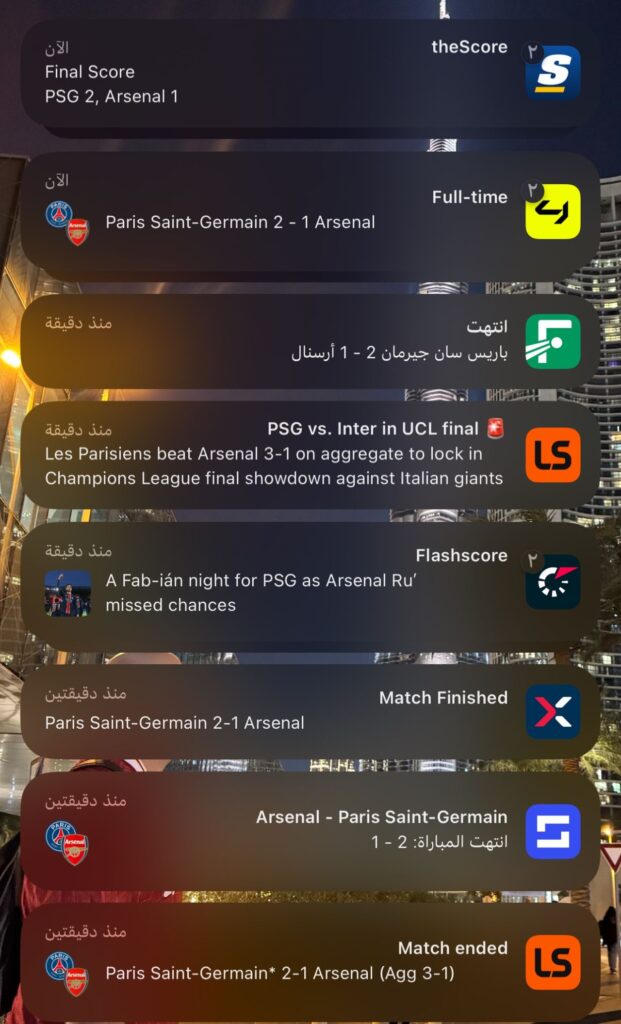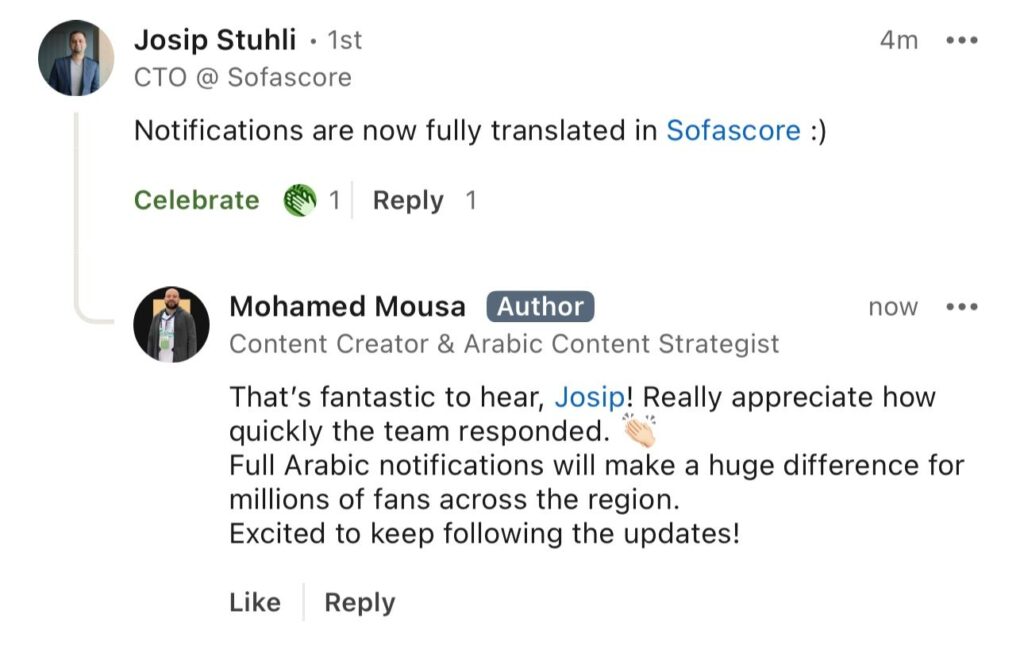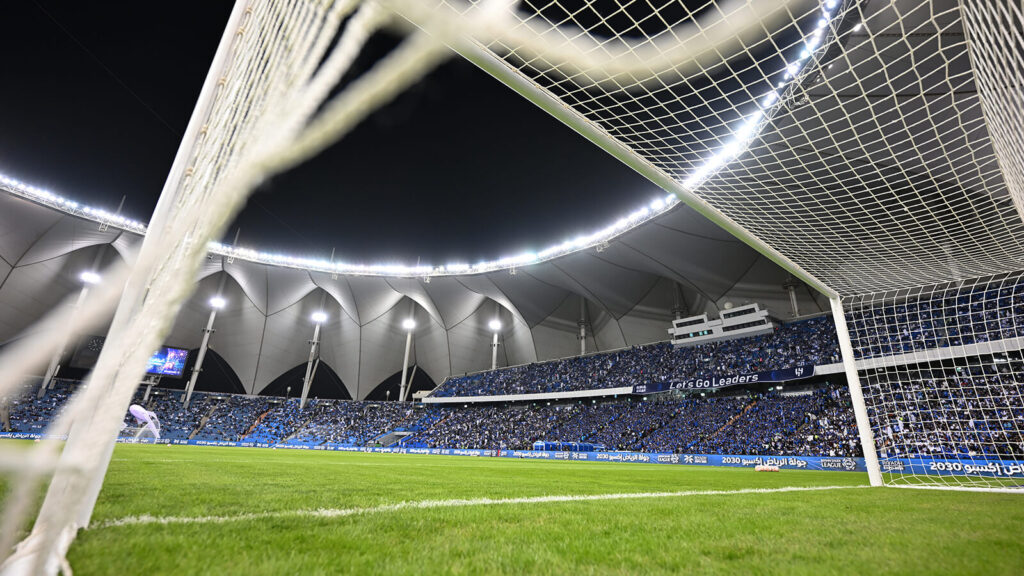It started with the Champions League semifinals – but not just the ones on the pitch.
As Inter and Barcelona played out a 4–3 thriller, Mohamed Mousa, content creator and Arabic content strategist, followed the match across seven different football apps. His focus wasn’t just the result, it was how the result was delivered.

He compared notifications, stats, and coverage styles, and while the content was broadly consistent (with Sofascore’s notification being the fastest one, of course).
The next day: same test, full Arabic setup
For the PSG vs Arsenal semifinal the following evening, Mohamed ran the test again. But this time, he set his entire phone to Arabic.
The idea was simple: if an Arabic-speaking fan used these apps natively, how well would they be served?
Sofascore once again ranked among the top three for notification speed, alongside LiveScore and Flashscore. This time, the deeper focus was on full Arabic-language support.
Sofascore was among the few platforms providing Arabic push notifications. But, as Mohamed noted, team and player names remained in English — even though Arabic versions existed within the app. It wasn’t a flaw, just a detail. But in localization, details matter.
Meanwhile, one app did deliver notifications entirely in Arabic, although a bit later than the others.
Importantly, Mohamed’s tone was never critical, he acknowledged the effort and simply highlighted a clear, fixable opportunity to improve the experience for millions of Arabic-speaking users.

The response: fast, clear, and live the next day
Within a couple of hours, Sofascore fixed it.
Team and player names were fully localized in Arabic notifications.
And it wasn’t an internal note, it was a public confirmation from our CTO.
Josip Stuhli, Sofascore’s Chief Technology Officer, joined the discussion and wrote:
“Notifications are now fully translated in Sofascore :)”
Josip Stuhli, Sofascore’s CTO
A quick fix. A better experience. And a reminder of what fast feedback can do.

Recognition from the community
In a follow-up post, Mohamed summed it up clearly:
“A fast, professional move, but more importantly, it sends a clear message to Arabic users: ‘We see you.’”
Mohamed Mousa, Content Creator & Arabic Content Strategist
That message is exactly what we hoped to deliver.
The MENA region is a vital part of the global football community: passionate, mobile-first, and deeply engaged with stats, analysis, and live data. At Sofascore, we believe in building tools that work not just globally, but locally – in the languages, formats, and cultural rhythms that fans expect.
Localization is never just translation
What may seem like a small fix on the surface is part of something much larger behind the scenes. At Sofascore, our localization team plays a central role in shaping the user experience for millions of fans around the world.
We currently support more than 40 languages across the platform, and that includes more than just interface text.
For example, we’ve transliterated:
- Over 10,000 team names in each of Arabic, Hindi, and Bengali
- More than 50,000 player names in those same languages
- Over 35,000 stadium names, across all sports
- Plus thousands of managers, tournaments, and entire leagues, not just in football, but across every sport we cover in those languages
It goes beyond just localizing words. It’s about internationalizing the software in the background to support the full linguistic experience and make it feel as natural and native as possible.
This is how we ensure that every fan, whether in Cairo, Kolkata, or Casablanca, sees a version of Sofascore that reflects their language, their teams, and their culture.
To our Arabic-speaking users:
You spotted something. We fixed it. And we’re listening for what’s next.
